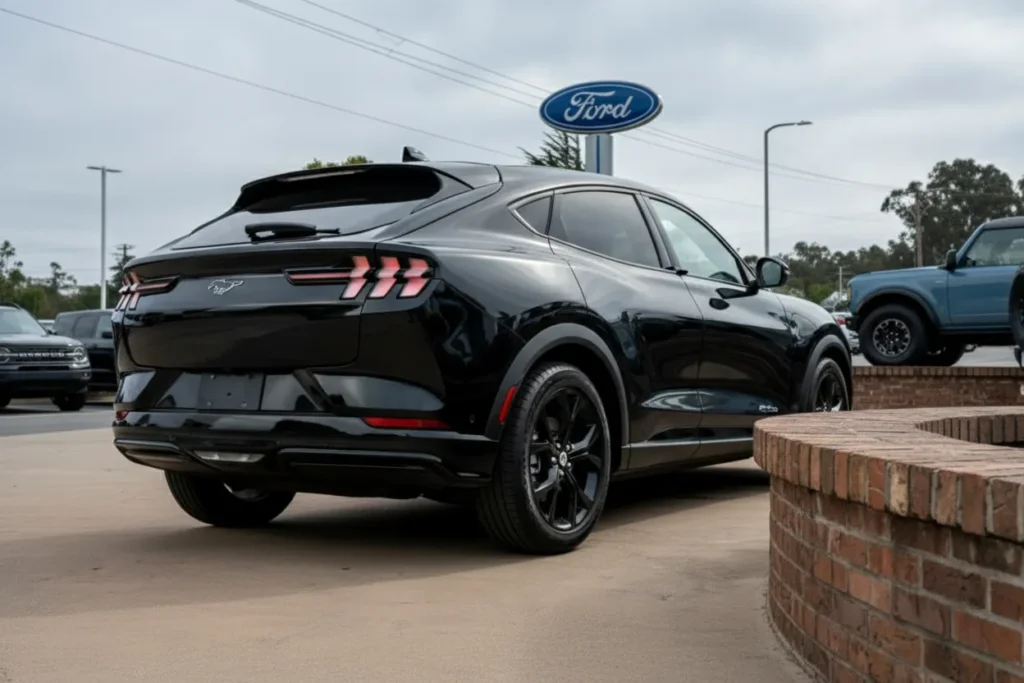Ford Braces for 50% EV Sales Drop After Loss of $7,500 Tax Credit
Ford Braces for 50% EV Sales Drop, as the expiration of the federal EV tax credit is expected to significantly impact consumer demand. Ford CEO Jim Farley has publicly stated his anticipation that the company could lose half of its consumer demand for electric vehicles. Farley told CNBC that he “wouldn’t be surprised” if the market share for EVs plummeted from its current 10-12% to around 5%, following the cessation of these crucial incentives as part of a new Trump Administration directive.
“Vibrant,” But “Smaller,” Says Farley
Jim Farley painted a picture of a future EV market that, while still “vibrant,” will be considerably “smaller” than previously projected. Speaking at a company event, he highlighted the dual impact of policy changes:
“I think it’s going to be a vibrant industry, but it’s going to be smaller, way smaller than we thought, especially with the policy change in the tailpipe emissions, plus the $7,500 consumer incentive going away,” Farley explained to CNBC. “We’re going to find out in a month. I wouldn’t be surprised that the EV sales in the U.S. go down to 5%.”

Unsurprisingly, the Ford CEO expects that hybrid vehicles will absorb some of this lost demand. Consumers have demonstrated a greater willingness to adopt partially electrified vehicles, and their sales have consistently shown more strength compared to those of fully electric vehicles. This shift suggests a strategic re-evaluation for automakers focused heavily on BEV production.
Uncertainty and Adjustments for Ford’s EV Future
The termination of federal incentives under the Trump Administration’s One Big Beautiful Bill Act introduces a significant period of uncertainty across the automotive industry. Automakers, including Ford, are now left with manufacturing facilities and production capacities that were planned based on previous demand forecasts fueled by these incentives.
Farley acknowledged the upcoming challenges regarding Ford’s battery plants and EV production capacity: “We’ll fill them, but it will be more stress, because we had a four-year predictable policy. Now the policy changed. … We all have to make adjustments, and it’s going to be good for the country, I believe, but it will be one more stress.” This indicates that while Ford remains committed to its EV transition, the path forward will require more adaptive strategies and potentially tougher decisions regarding resource allocation and production targets.
In the short term, Ford has already devised creative workarounds to extend some financial benefits to customers. The company has figured out how to extend discounts to customers by buying up its own vehicles (with the tax credit included) before selling them back to dealers. These retailers can then lease them to customers, effectively factoring in the $7,500 credit over the term of a buyer’s lease. This innovative approach partially extends the incentive’s benefit to consumers, a strategy other automakers are likely exploring as they too face slowing demand for EVs in the absence of federal support.
Also Read – Theon Design 407HP Carbon-Fiber 964 911 Breaks 100 HP/Liter Barrier, Weighs 2,420 Lbs




Pingback: Kia Achieves Best U.S. Sales Quarter Ever: Electrified Vehicles, Sedans & SUVs Drive Growth - Mechhelp